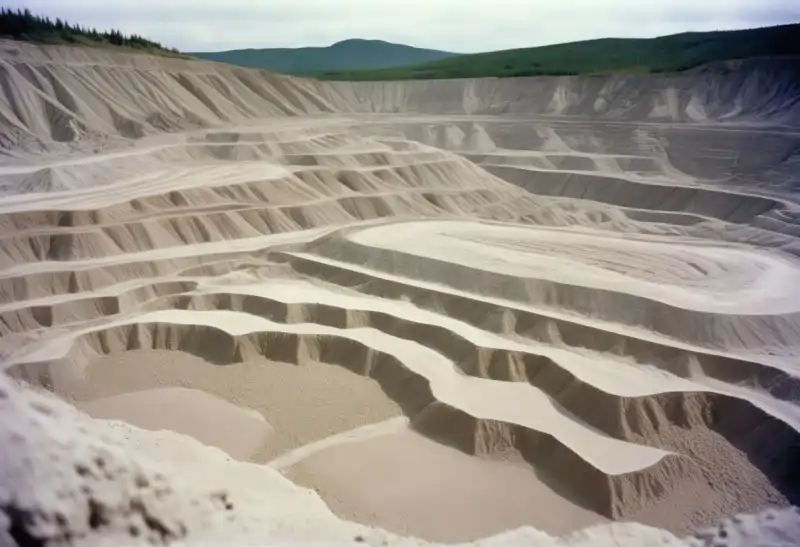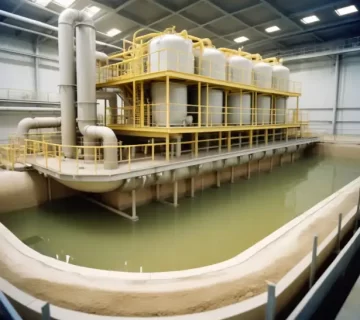Bentonite is a type of natural clay that is used in many industries due to its unique physical and chemical properties. This mineral comes from the decomposition and weathering of volcanic ash and has high absorption properties, strong adhesion and thermal stability. In this article, we will take a closer look at bentonite, its formation process and the differences between its different types.
Bentonite formation:
Bentonite is formed by weathering and decomposition of volcanic ash. Its formation process mainly involves chemical reactions between minerals in volcanic ash and water. These processes change the chemical and physical structure of minerals and finally form bentonite. Factors such as temperature, pressure and the type of primary minerals play an important role in the formation of bentonite.
Features of bentonite:
High absorbency: Bentonite has the ability to absorb large amounts of water and other liquids, which makes it suitable for various applications.
Strong adhesion: This property makes bentonite used as an adhesive material in various industries.
Thermal stability: Bentonite is stable at high temperatures and little physical and chemical changes occur in it.
Swelling ability: Bentonite, especially its sodium type, has the ability to swell in contact with water, which leads to an increase in its volume.
Differences between sodium and calcium bentonite:
Bentonite is divided into two main types: sodium bentonite and calcium bentonite:
Sodium Bentonite: This type of bentonite has high swelling properties and more water absorption capacity. Sodium bentonite swells in contact with water and its volume increases. This feature makes it very useful in applications such as drilling mud, cement production and as an adhesive in casting.
Calcium bentonite: this type of bentonite has a lower water absorption capacity and its swelling properties are lower. Calcium bentonite has many uses in the food, pharmaceutical and cosmetic industries. This type of bentonite is used as a clarifying agent in the production of beverages and as an absorbent material in the production of health products.
A deeper understanding of the formation and properties of bentonite can help in its correct selection in various industrial applications. Considering the differences between sodium and calcium bentonite, knowing the exact needs of each industry and adapting it to the specific characteristics of each type of bentonite can help improve the quality of products and increase productivity.





No views